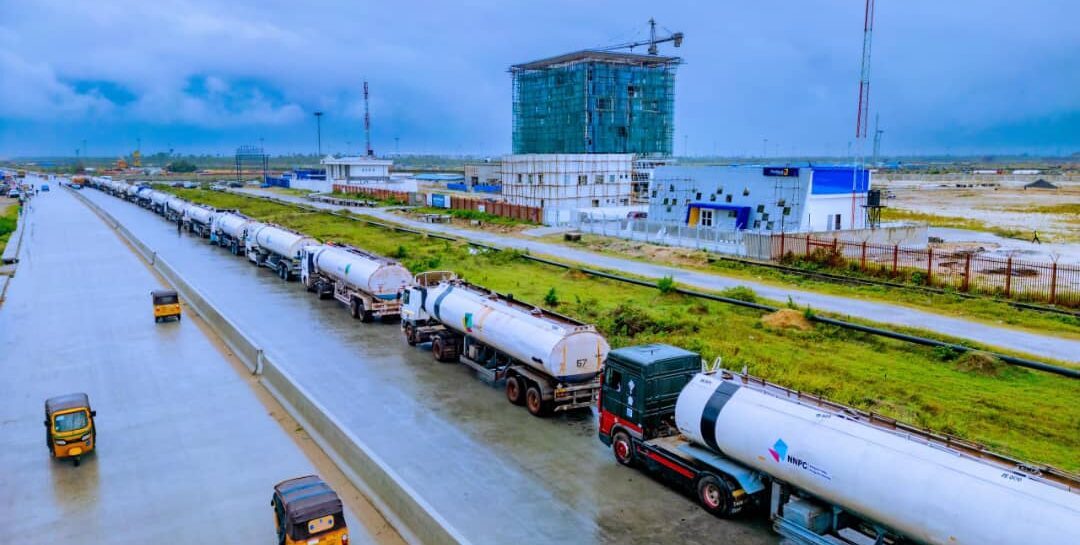The ongoing heated political climate is casting a long shadow over Nigeria’s new GDP figure, clouding what should be a clear conversation about economic progress with suspicion and partisan narratives, writes Festus Akanbi
The recent rebasing of Nigeria’s economy, which unveiled a fuller, more colourful picture of growth by spotlighting previously overlooked sectors, ought to have been a breath of fresh air in the national conversation; yet, in the heat of today’s politically charged climate, its glow is dulled by a wave of doubt.
Concerned Nigerians, including the Manufacturers Association of Nigeria (MAN), wary of the times, now scrutinise the impressive GDP figures with furrowed brows, questioning whether these numbers truly reflect economic reality or are just another card played in the high-stakes game of politics.
Last week, an elated Statistician General of the Federation, Adeyemi Adeniran, put the nominal GDP at N372.82 trillion (approximately $243 billion) as of 2024, reflecting a year-on-year increase of 18.30 per cent in nominal terms.
This means that Nigeria is now Africa’s fourth-largest economy after South Africa, $410.34 billion, Egypt $347.34 billion, and Algeria $268.89 billion. NBS also disclosed that the economy grew by 3.13 per cent in the first quarter of the year (Q1 2025).
Essentially, the exercise changed the base year used for calculating economic activities to 2019 from 2010. Following the rebasing of GDP using 2019 as the base year, the economy grew by 3.13 per cent year-on-year in real terms in Q1, compared to 2.27 per cent in Q1 2024.
Adeniran said the economy was dominated by the services sector, which accounted for 53.09.per cent post-rebasing, compared to 52.60 per cent before the exercise. He added that the top five performing sectors include crop production, trade, real estate, telecommunications, and oil and gas.
According to GDP estimates for Q1, 2025, aggregate GDP at basic price stood at N94.05 trillion in nominal terms, compared to N79.51 trillion in Q1 2024, representing a nominal growth of 18.30 per cent. Real GDP stood at N49.34 trillion.
The rebasing exercise, which expanded GDP coverage to include sectors such as the digital economy, fintech, creative industries, and the informal sector, significantly increased Nigeria’s nominal economic output and improved its debt sustainability profile on paper.
Politicising the GDP
As if sensing the mood of the nation, Adeniran, who insisted that the outcomes reflected changes in economic reality, however, cautioned against politicising the new figures.
However, critics say the glitter of Nigeria’s newly announced GDP figures, proudly showcased by the statistical body, rings hollow for many Nigerians who wake each day to the harsh bite of soaring prices and shrinking incomes. For them, the numbers feel like a distant dream, disconnected from the grim reality of markets where basic goods slip further out of reach. This stark mismatch between the rosy economic statistics and the punishing cost of living fuels much of the criticism, as ordinary citizens struggle to reconcile the promise of growth with the daily grind of survival.
This concern was captured by the opposition political party, African Democratic Congress (ADC), which described the recent celebration of the rebased GDP as “misleading and a cynical public relations stunt disguised as economic progress.”
ADC, in a statement by its National Publicity Secretary, Mallam Bolaji Abdullahi, described the fanfare around the rebased GDP as “economic cosmetics” that neither improves the quality of life for ordinary Nigerians nor solves the foundational crises crippling the economy.
According to the party, while government officials were busy touting a new GDP figure, millions of Nigerians are battling record food inflation, grinding poverty, and collapsing infrastructure.
The party said, “Economic growth is not about dressed-up numbers that make the government look good. Economic growth means nothing if it leaves the majority of the people behind and is not felt on the dining table and in the marketplace.”
It noted that GDP rebasing is a neutral statistical tool to reflect structural changes in the economy, but in the hands of this government, it has become a mirror, exposing the economic decay and leadership failure of the All Progressives Congress (APC) over the years.
According to ADC, Nigeria’s GDP, which stood at $509 billion in 2014 after a previous rebasing, has now collapsed to $244 billion, adding that in a single decade, Nigeria has fallen from Africa’s largest economy to fourth place, now behind South Africa, Egypt, and Algeria.
MAN Calls for Caution
Meanwhile, manufacturers have called on the federal government not to see the nominal increase of 18.3 per cent year-on-year Gross Domestic Product (GDP) growth recorded in the latest rebasing of Nigeria’s economy as evidence of significant economic progress.
Speaking under the aegis of the Manufacturers Association of Nigeria (MAN), manufacturers explained that this is because it might have obscured some of the economy’s deep-rooted challenges, as real GDP’s average growth remained weak at 1.95 per cent between 2020 and 2024.
MAN also stated that the declining performance of the manufacturing sector, from 27.65 per cent in the 2010 base year to 21.08 per cent in 2019, as seen from the rebased GDP, was a strident call for structural industrial reforms.
The Director General of MAN, Mr. Segun Ajayi-Kadir, pointed out that although the GDP’s rebasing has confirmed that Nigeria’s economy has become statistically larger, it has also made it clear that Nigeria’s economy is neither more productive nor more industrialised.
He said: “The revised nominal GDP estimate, showing an 18.3 per cent year-on-year increase, is a direct outcome of improved data capture, especially in agriculture, services, and informal sector activities. Notwithstanding, MAN strongly cautions against interpreting this nominal expansion as evidence of significant economic progress.
“MAN, therefore, calls on the government to treat the rebased GDP not as a celebration of growth, but as a strident call for structural industrial reforms,” adding that “Nigeria must re-industrialise to achieve inclusive growth, build export capacity, and reduce dependence on primary commodities and informal activities.”
MAN, therefore, urged the government to prioritise manufacturing policy, financing, and infrastructure development because, without a strong industrial base, GDP expansion may just become a ‘hollow statistic’ that is not backed by productive transformation.
What Economists are Saying
A Professor of Economics at the Lagos Business School, Bongo Adi, told THISDAY during the week that the apparent paradox between Nigeria’s rebased GDP figures and citizens’ life experiences reflects a fundamental challenge in development economics that extends far beyond our borders. He explained that the GDP, while valuable, remains an imperfect measure of societal well-being.
According to him, “The disconnect stems from several critical factors. First, GDP measures the total value of goods and services produced, not their distribution across the population,” adding that Nigeria’s economy could indeed be growing while simultaneously experiencing increased inequality, meaning the benefits accrue primarily to specific sectors or demographic groups.
He, however, picked holes in the choice of the base year, arguing that “the use of 2019 as the base year is questionable. When we rebased in 2013, we pegged the base year to 2010. The argument put forward for using 2019 instead of 2024 as the base year lacks a theoretical basis.”
Responding to THISDAY’s inquiry on the alleged politicisation of the new GDP, Razia Khan, Standard Bank’s Chief Economist for Africa & Middle East, said in an email message, “The smaller USD estimate of GDP (reflecting FX depreciation) suggests this was no gimmick.”
Khan, a well-known commentator on African markets, explained that Nigeria has always seen a sizeable difference between median incomes, reflecting what most Nigerians earn, and average per capita incomes. “But improvement in measurement means Nigeria can start to correct for this with the right policies, boosting social safety nets, for example,” she said.
In his reaction, a renowned economist and the CEO of CFG Advisory, Adetilewa Adebajo, in a recent interview on ARISE News, said there is nothing to cheer about the new GDP threshold, saying it is clear Nigeria has lost its position as the fifth-largest economy in Africa, having lost almost $400 billion in GDP over the last 12 years.
He said, “I think the pronouncements were a bit confusing. What the statistician general told us then was that he was looking at 2019 figures based on Nigeria’s GDP data.
In conclusion, the federal government would need to engage transparently, clearly explaining the methodology and intent behind the rebasing, to assure Nigerians that it is a professional exercise aimed at better understanding and improving the economy, not serving political ends.
The post GDP Figures with Furrowed Brows appeared first on THISDAYLIVE.




